
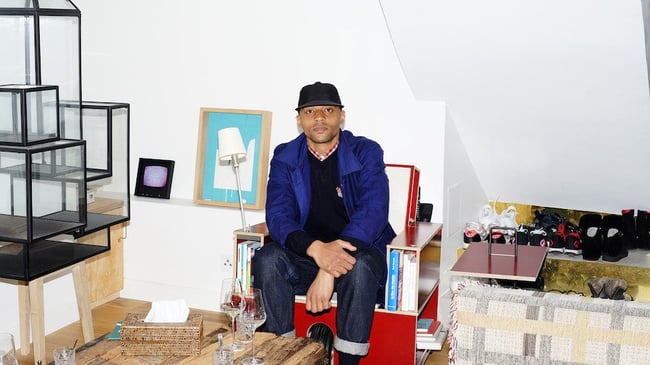
A day in the life of David Bellion
Photos Louis Canadas
Words Matthieu Morge-Zucconi
Share the article on
The Red Star creative director talks reconversion, Manchester United and Ennio Morricone.
Cliquez ici pour lire en français.
You don’t get to meet the fastest striker in the history of the Europa League everyday. On a sunny Monday morning, it is David Bellion, striker with the Bordeaux Girondins after 11 seconds opposite Galatasaray in 2009, who awaits us in front of his house, all smiles and arms full of mint.
What is the ex-footballer doing with mint? “I’ll make tea” he says. As we follow him, we discover his apartment, a sumptuous space over three floors in the middle of the Marais in Paris. Over a homemade cup of tea, David, now the creative director of the Red Star, a League 2 football club based in Saint-Ouen, answers our questions. Interview of a man who is as comfortable on the Old Trafford lawn and the Manchester United stadium as he is in art galleries.
David can you introduce yourself to our readers ?
My name is David Bellion, I am 34 and the Brand Manager and creative director of the Red Star.
Concretely, what is your role within the Red Star ?
At the Red Star, we try to build bridges between culture and football. My role is to know what we want and don’t want to do in diverse fields such as painting, gastronomy and music - the whole suiting the club’s image.
So you don’t deal with sponsorships with brands and artists ?
I am not in talks with the big sponsors. My role lies in our collaborations. Recently we launched a collaboration with the brand Racket, around an alpaca shirt limited to 18 copies. We have set up Krampf, a young dj, to guarantee music on match days with Future and hip hop. We sponsor the Jules Rimet literary prize and the football film festival La Lucarne. We also have a block party in mind for the end of the year, a calendar…
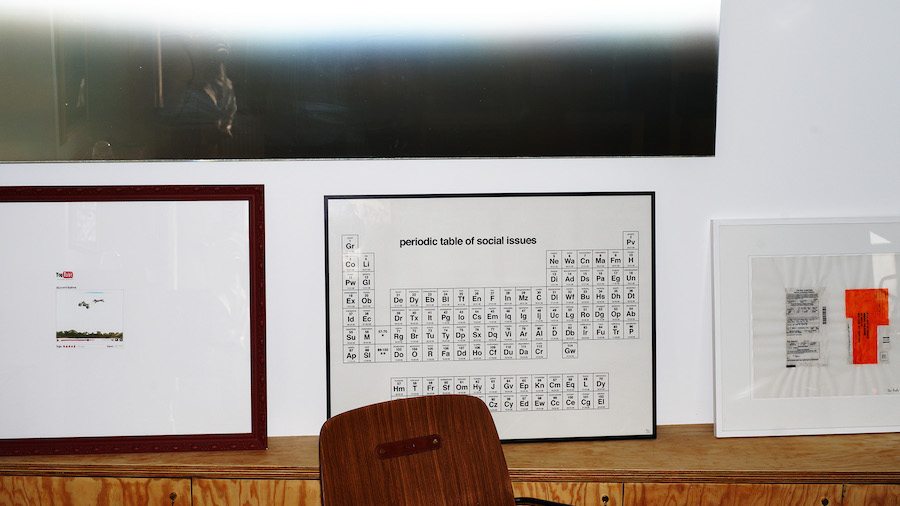
Why all these initiatives ? To differentiate from other clubs? ?
The objective is look ahead and not only look at the club’s past. Rewriting the scenario, in a way. The Red Star is a popular, approachable club. We want to use that, bring people together and attract people with different sensibilities to the club. Recently we have realised our 120 year anniversary campaign with Marfa Journal (Editor’s note: a fashion and arts magazine) and collaborated with the calligrapher Nicolas Ouchenir for the anniversary shirt.
Generally, former athletes reconvert closer to the field. Not you. How do you explain it ?
I’ve always bathed in design and culture. With my dad, an architect who writes poetry, we never talked about football. I actually watch very little. However, creative direction interests me a lot. My aim is to bring people a new approach to football. Other sports such as skateboarding or surfing have strong cultural stuff made about them: Larry Clark or Beach Boys are examples. Football is the most popular sport in the world but it isn’t well perceived culturally.
Do you think it is a French problem ?
A little but not only. Elsewhere, stuff happens: in the US, there was the Cosmos for a while, with Pelé and Beckenbauer in the 70s. In Australia, there is the Local FC, a website that has a similar approach to us to football culture, “lifestyle”. In Germany, the Sankt Pauli FC is another example of the bridges that can be built between culture and football. In Italy, there’s is the A.S Velasca, an extraordinary Italian club linked to art. In France, we feel like we shouldn’t rush the historic supporter, and so we don’t take so many risks.
Since the Red Star is indeed a historic club, juggling between these collaborations and the club’s heritage isn’t too difficult ?
I think the historic dimension of the club makes it even more interesting. The Red Star is according to me the most credible club, thanks to its history, to build bridges between culture and football. The supporters of the club are unique, they support the team even during its heavy defeats, especially during this particularly hard season. The question of how to talk to them was asked early on. Certain collaborations have to be thought with them in mind, so they can be proud to sport its colours. Also, since we are a family club, we don’t want vulgar music, to please everyone.
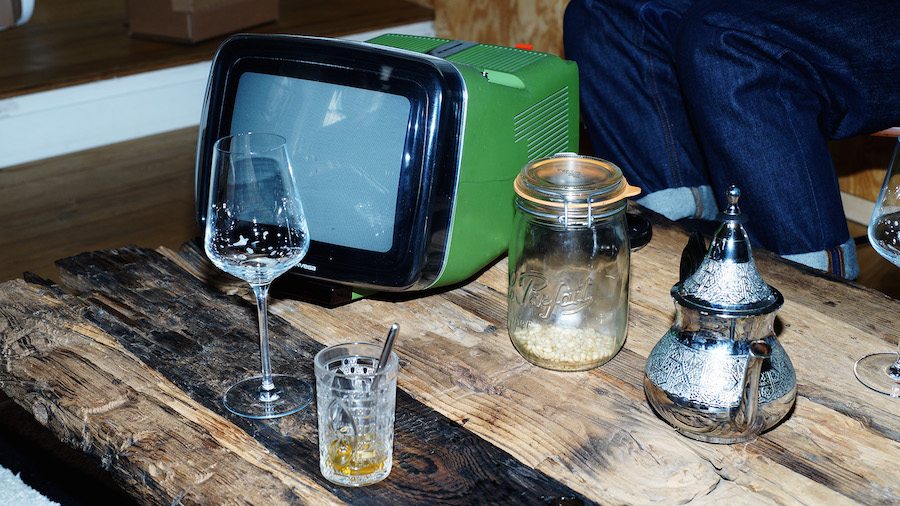
Officially, sport isn’t over for you: you never really gave up.
No, I actually play in the league of the Ballon FC with the Atletico Paris. For the third season, the league needed a field and I have pushed so they could play at Bauer. We often collaborate with them now, it is a beautiful story. Otherwise, I don’t really see myself coming back to the professional realm. In the beginning of my career, I told myself I would stop when my legs would give out, but I have found something that fit me better - the Red Star suits my values.
How ?
I like a certain idea of raw football. It is street football that I prefer. My latest season, in National, was exceptional. There was an amateur vibe in a professional world, it was resourceful and simple. The supporters followed us everywhere, we have a team of mates, we lived a very good year. Football is a slice of life in my life as a man. Throughout my career, I was hanging out in museums, wandering, daydreaming… Today I have found happiness in my work, I do something I always loved and I see myself continuing.
In your career as a player, you have known a very large club, Manchester United. Could you tell me about it?
It was extraordinary. We played magnificent football. I haven’t played much, but when i played, if I made the right call, I had the ball the way I wanted it. A superb experience.
Was Manchester a dream come true ?
When I was young, I wanted to be in a big club. It was blatant for me: I knew that I had to become a football player, I had to play for a big club. When Manchester came looking for me when I was at Sunderland, I didn’t hesitate: Ryan Giggs was my idol. That said, when I arrived, I wasn’t like in a dream, I was happy to play with him, that’s all.
When we look at the club you went through, you’ve known Sunderland, Manchester, West Ham, Nice, Bordeaux and the Red Star. It seems like you picked them with your quality of life in mind.
That’s for sure. My mind was never 100% set on football, I liked too many other things for that. Manchester was a music city. Nice, an instinctive choice and a superb city, especially since i lived in Cannes and my friends and mother weren’t far. West Ham was London, a great city but I hurt myself. Bordeaux is one of the best French cities. I arrived at a moment where there was some sort of renewal of the city which was called “the sleeping beauty” before that.
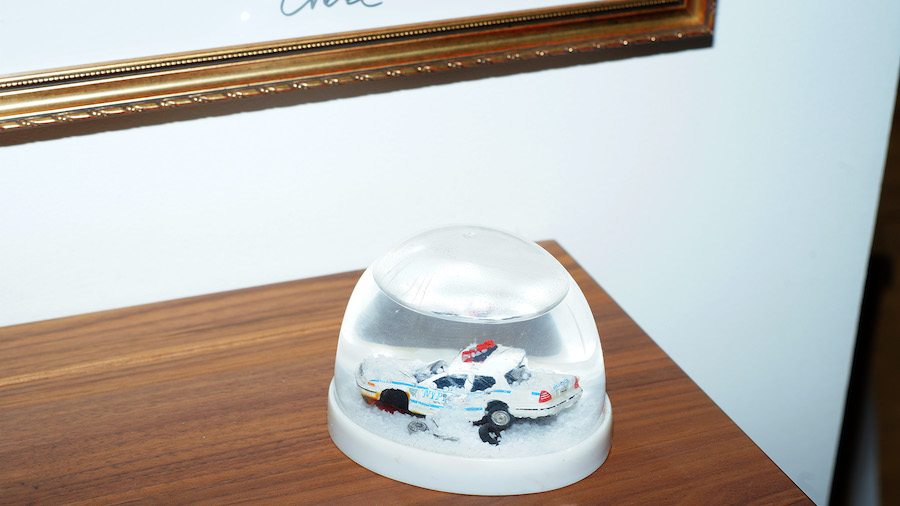
You ended your career in Paris, there’s been worse.
To be honest, I wanted to live in Brooklyn. I almost signed with the Cosmos, but it didn’t happen. I signed with the Red Star, because it was Paris, I had family there and I am a Parisian. I also bought my freedom. I had to make financial sacrifices, for sure but it didn’t matter. In League 1, you’re always taken back to your salary, we expect a certain result from you because you earn a lot of money. Here, I have my bicycle, my chilled life, I’m good.
In Bordeaux, you won everything. Does this city have a particular value in your eyes?
Championship, World cup, league Cup, yes I won everything over there. But I don’t rank my best moments through the trophies I’ve won. Bordeaux is particular because I got married there, my children were born there and I opened a restaurant, a concept to my likeness, over there.
Can you tell me more about it ?
I was going to New York a lot and I discovered the Freeman’s Sporting Club, a shop with a barber, a restaurant… I wanted to open something like that, some sort of Gentlemen’s club. I liked breakfast, Italian food, music, getting a shave, so I made something with all of this in it: Baxter of California products, Japanese whiskies, member cards like in Soho House, a hotel where I went all the time in New York.
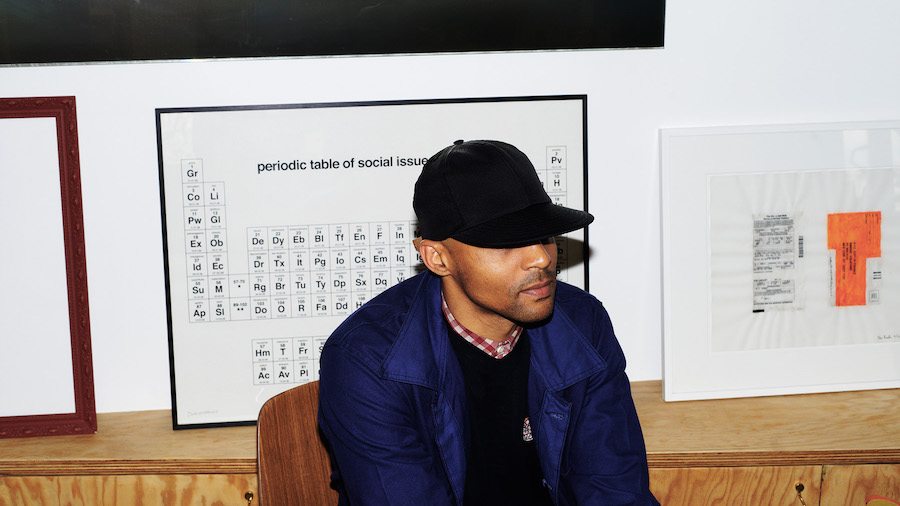
What does a work day look like for you ?
It is beautiful, I am lucky. I don’t have to show up, I mainly work from my iPad. I travel with my bicycle, I get inspired. If I have a meeting, I have it in the office of the president (Editor’s note: Patrice Haddad, Red Star president). I don’t count the hours, it’s passion that lights me up. There is real trust between the president and me, it is nice to work in these conditions.
Do you wake up early ?
I have two kids so yes, necessarily. During school, I wake up at 7.30. I go to bed late so I sleep little. I have breakfast with the kids, I drink toasted mate and eat a copious breakfast while looking up the news. I also read my emails, that’s a priority. I take them to school, it is one of the pleasures in my life, to spend more time with them.
What did you take from your past as a professional athlete ?
I’ve always exercised a lot. I go to the gym at noon, the Klay, almost everyday. I go two hours after breakfast to have the time to digest well. I also watch my food a lot. After working out, I go to Wild & The Moon, a juice bar close to it, for bars and juices because I am gluten intolerant. I had an almost holistic approach to football. My mum is a vegan, passionate about old products, we never had medication at home so I have never taken those that were given to me.
Do you watch your food a lot ?
Yes, I started eating organic very young. When I played I was often doing food detoxes in Italy, with fasts, mud baths… We easily eat badly today if we don’t educate ourselves. We quickly form bad habits. I prefer spending more on food than on doctors.
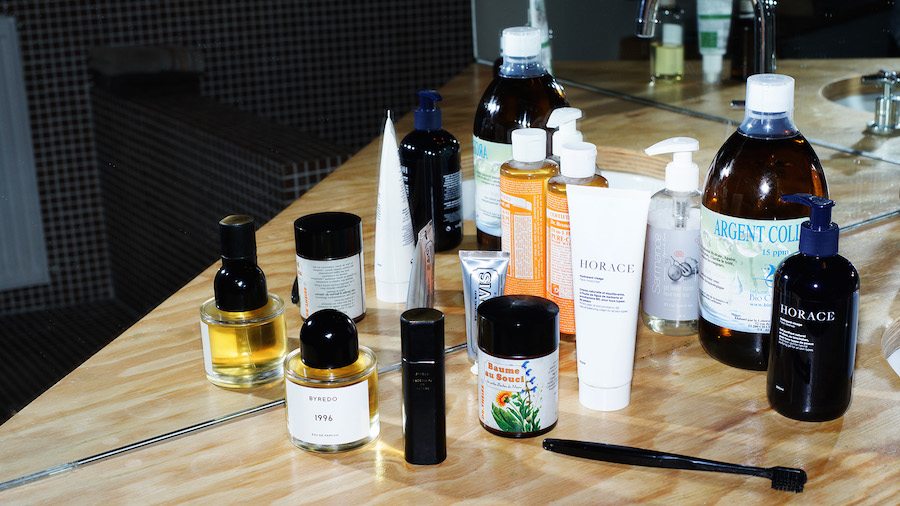
Do you have the same approach to products ?
I put stuff on my skin since I was little because i have very dry skin. When I played Manchester, I was young, I was tricked easily by packaging. I tried all the most expensive products, Crème de la mer, Clarins, etc. Then I used Baxter because I had some left over from my salon, and I use Horace products, the cleanser, moisturiser, the toothbrush. I like the natural aspect of it. I also use a lot of essential oils, clay, colloidal silver. I treat myself to tea tree, rose oil, sweet-almond oil… For perfume, i like Byredo: 1996 or M/Mink.
You have a shaved head and very short beard, you shave them often ?
Yes, once a week for the head, twice a week for the bead. I use the Philips OneBlade. In 10 minutes, you get everything done. It’s amazing. Before i used a very expensive Japanese trimmer but this one’s better.
You said you go to bed late, what do you mean by that ?
I rarely go to bed before 1am. I like the night, being alone, drinking red wine or tea, listening to jazz. That’s when I think and get ideas. Sometimes I watch a film or a tv show. I don’t like vulgar stuff, I like what is slow and beautiful. I love Mad Men, House of cards, The young pope.
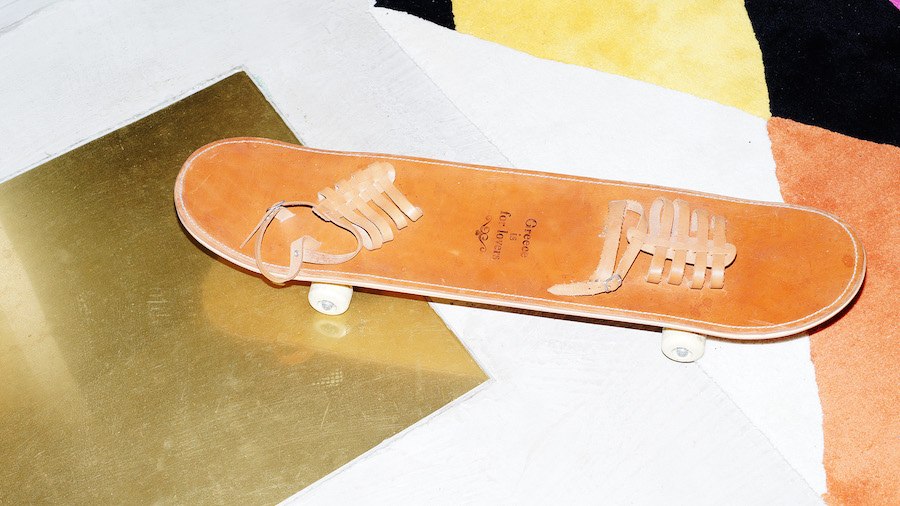
You collect pieces of art and design. Do you hang out with many galleries ?
A little less than I used to. I have a pretty big collection, even I sold a lot of stuff. What I like is revisited old school. There is a lot of wood, hijacked objects: a fine by Tom Sachs for example.
I have to ask you: who is the most impressive player you’ve met ?
It’s hard to answer! I’ll give you several: the easiest is Veron. Technically he could do everything; The hardest working it Cristiano Ronaldo. Paul Schole saw everything before the others. The most complete and genius was Wayne Rooney. And my idol is Ryan Giggs !
If you hadn’t been a professional footballer, you would have gone for artistic direction earlier ?
When I was young, I wanted to do music. When I arrived at Sunderland, I bought a keyboard and used the same software as Timbaland and Swizz Beatz. I wanted to make film soundtracks, because I love Hans Zimmer, Carter Burwell, Ennio Morricone… But if I didn’t play football, I would have wanted to be Pharell.